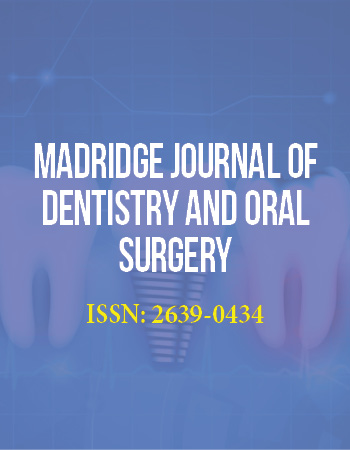International Conference on Dentistry
April 3-5, 2017 Dubai, UAE
The effect of Urethane dimethacrylate surface treatments on the tensile bond strength of three different denture liners
King Saud University, Saudi Arabia
Introduction: The adhesion between the reline material and the denture base to form durable bond is needed for the comfort and function of the patientsʼ prosthesis. Some authors recommend denture surface treatment prior to applying the reline material to overcome the problem of separation of relining materials.
Objectives: The aim of the study was to evaluate the effect two different surface treatments on the tensile bond strength of three different resilient relining materials bonded to urethane dimethacrylate (UDMA) light activated resin denture base and to detect the mode of debonding between the resilient lining materials and the UDMA.
Materials and Methods: A total of 108 dumbbell-shaped specimens UDMA resin specimens were prepared. Specimens were divided into three group. The first group was the control with untreated surface. The second group was treated with Al2O3 size 50µm while the third group was treated with acetone for 30 seconds. Furthermore, these group were divided to three subgroup according to relining materials used, heat-polymerized acrylic (Vertex Soft), self-polymerized acrylic (Perma Soft) and self-polymerized silicone (Bosworth- Dentusil). All specimens were subjected to thermo cycling (1500) cycles for 24 hours, the temperature ranging from5_55°. Then specimens were attachedto instron by a custom jig and subjected to a tensile force at a crosshead speed of 5 mm/min until debonding occurred. The data was analyzed statistically by Two-way ANOVA and one way ANOVA test for detection of the difference within the group and between the groups.
Results: Two-way ANOVA showed that the surface treatment and the different relining material had significant effect on the tensile bond strength. Perma Soft had the higher tensile bond strength than the other groups (2.465 ±0.261 Mpa) and it was increased 30% more with acetone surface treatment. Sand blasting surface treatment increased the tensile bond strength for Bosworth- Dentusil and vertex soft but not statistically significant. Bosworth- Dentusildebonded in adhesive, cohesive and mixed failure mode. The other two materials debonded adhesively only.
Conclusion: this study showed that Perma Soft relining material is best option for relining UDMA denture resin, and its tensile bond strength was increased 30% more with acetone surface treatment .Each relining material react in different manner than the other for each surface treatment.
Biography:
Kareimh Hadhiah is from Kingdom of Saudi Arabia graduated from King Saud University with bachelor degree and continue her postgrade study in prosthodontics in the same university, she work in the ministry of health in the eastern region, Dammam medical complex.


